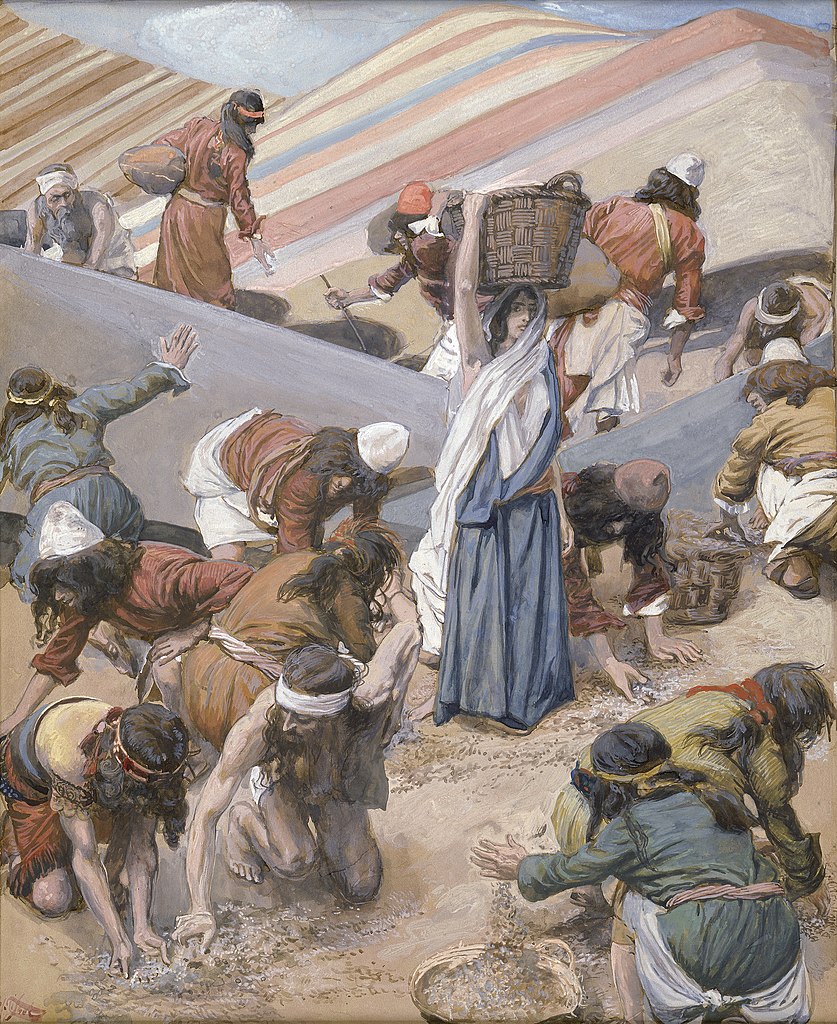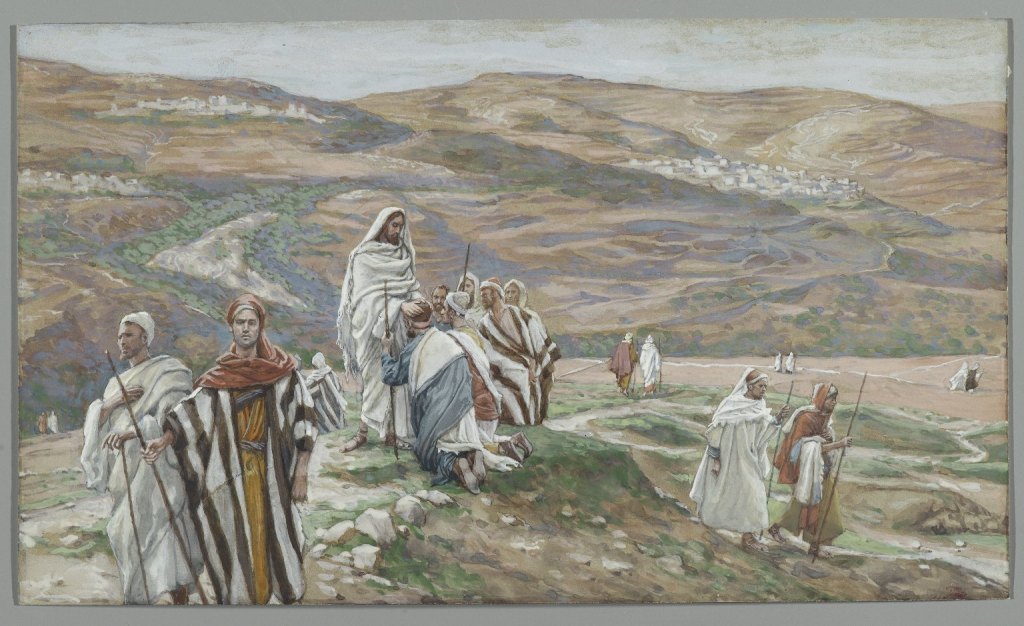Whenever I read today’s passage from Exodus, my heart really goes out to Moses. He has a thankless task leading the people of Israel, when all they seem to do is moan and complain. After spending weeks in the wilderness the Israelites are desperate and hungry. They are grumbling about the lack of food compared to their old life in Egypt. God hears their need and promises to give them meat in the evening and bread in the morning. The people of Israel are given quail, and a fine flake-like substance. They do not know what sort of food it is, and ask, ‘What is it?’ (In Hebrew Mān-hu, from which we get the word ‘manna’). For Christians this miraculous feeding foreshadows the great miraculous feeding of the New Testament, namely the Eucharist, where we are fed by Christ, and with Christ.
Last week’s Gospel was the account of the miraculous Feeding of the Five Thousand. This is not a parable about sharing, but rather it is a miracle, a supernatural event where God’s generous love breaks through into our human world. In today’s Gospel, we see people who have been fed in the miraculous feast, following Jesus around. Perhaps they’re hoping for another free lunch? It is clear that they haven’t seen the signs, and they haven’t understood what is going on. Jesus feeds people not as a combination of magic trick and mass catering, but as a sign of God’s generous love. God loves us, you and me — all of us — so much, that He longs to feed us with Himself. He loves us so much that He gives Himself to be tortured and to die on the Cross for us. This is the central message of Christianity: God loves us, and wants us to share Eternal Life with Him.
In contrast to a world which views achievement as most important, God declares that it is what we believe that really matters. Whilst we celebrate with those who have won medals in Tokyo, we do so in the knowledge that Olympic glory will fade, and others will follow, who will be faster and stronger. What we should strive for is a glory which is more than gold or silver: the glory of Heaven, the joy of Eternal Life in God. We train for this by believing in our loving Creator, and doing His work in the world.
The people ask Jesus:
“What must we do, to be doing the works of God?”
Jesus answers them:
“This is the work of God, that you believe in him whom he has sent.” (Jn 6:28-9)
This reply, while it is clear and simple, is not entirely convincing, so the people interrogate Jesus further:
“Then what sign do you do, that we may see and believe you? What work do you perform? Our fathers ate the manna in the wilderness; as it is written, ‘He gave them bread from heaven to eat.’” (Jn 6:30-31)
The people want to see more signs. The Feeding of the Five Thousand wasn’t enough for them. Jesus asks them to believe in Him, and to put their trust in God. He then explains what is happening in the Exodus story:
Jesus then said to them, “Truly, truly, I say to you, it was not Moses who gave you the bread from heaven, but my Father gives you the true bread from heaven. For the bread of God is he who comes down from heaven and gives life to the world.” They said to him, “Sir, give us this bread always.”(Jn 6:32-4)
The people’s request, “Sir, give us this bread always” is echoed in the words of the Lord’s Prayer: ‘Dyro i ni heddiw ein bara beunyddiol, Give us this day our daily bread’. This prayer is fulfilled in the Eucharist. Here Jesus gives us the Bread of Heaven, so that we might be fed by Him, and with His Body and Blood, so that we might have a foretaste of Heaven and a pledge of Eternal Life in Christ.
Time-wise, this conversation and the Feeding of the Five Thousand takes place around the festival of the Passover. This is the time when Israel commemorates its journey from slavery in Egypt to the freedom of the Promised Land. It is also at Passover when Jesus suffers, dies, and rises again: ‘Pasg’, ‘Easter’, the time when Jesus institutes the Eucharist on the night before He dies, in the Upper Room with His disciples. The timing is important, as under the New Covenant God’s people are fed, their sins are forgiven, and they are reconciled to God, and each other. A miraculous feeding will happen here today, when we, the people of God, united in love and faith, offer ourselves and the bread that we have, so that it may be taken, blessed, broken, and shared. It is given so that we may be partakers in the mystical supper of the Kingdom of God. We eat the Body of Christ not as ordinary food , but as spiritual nourishment so that WE may become what HE is.
Jesus said to them, “I am the bread of life; whoever comes to me shall not hunger, and whoever believes in me shall never thirst. (Jn 6:35)
These are words we can trust: Christ yw bara bywyd, Christ is the Bread of Life. This is the first of seven sayings in John’s Gospel where Jesus describes who He is, and what He does by saying ‘I am …’ This is a direct echo of when God speaks to Moses at the Burning Bush in Exodus 3:14 and says:
‘I am who I am’
So here Jesus is telling us who He is, who God is, so that we can believe in Him. He does this so that we can be fed, and sing the praise of God the Father, God the Son, and God the Holy Spirit. To whom be ascribed, as is most right and just, all might, majesty, glory, dominion, and power, now and forever. Amen.


